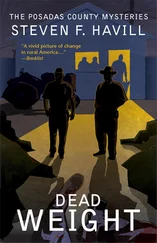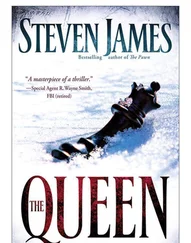Steven Levitt - Freakonomics
Здесь есть возможность читать онлайн «Steven Levitt - Freakonomics» весь текст электронной книги совершенно бесплатно (целиком полную версию без сокращений). В некоторых случаях можно слушать аудио, скачать через торрент в формате fb2 и присутствует краткое содержание. Год выпуска: 2005, ISBN: 2005, Издательство: HarperCollins Publishers Ltd., Жанр: Прочая научная литература, на английском языке. Описание произведения, (предисловие) а так же отзывы посетителей доступны на портале библиотеки ЛибКат.
- Название:Freakonomics
- Автор:
- Издательство:HarperCollins Publishers Ltd.
- Жанр:
- Год:2005
- ISBN:ISBN 0-06-083822-1
- Рейтинг книги:5 / 5. Голосов: 1
-
Избранное:Добавить в избранное
- Отзывы:
-
Ваша оценка:
- 100
- 1
- 2
- 3
- 4
- 5
Freakonomics: краткое содержание, описание и аннотация
Предлагаем к чтению аннотацию, описание, краткое содержание или предисловие (зависит от того, что написал сам автор книги «Freakonomics»). Если вы не нашли необходимую информацию о книге — напишите в комментариях, мы постараемся отыскать её.
Freakonomics — читать онлайн бесплатно полную книгу (весь текст) целиком
Ниже представлен текст книги, разбитый по страницам. Система сохранения места последней прочитанной страницы, позволяет с удобством читать онлайн бесплатно книгу «Freakonomics», без необходимости каждый раз заново искать на чём Вы остановились. Поставьте закладку, и сможете в любой момент перейти на страницу, на которой закончили чтение.
Интервал:
Закладка:
It’s quite possible that a typical Weakest Link contestant isn’t even cognizant of his discrimination toward Hispanics and the elderly (or, in the case of blacks and women, his lack of discrimination). He is bound to be nervous, after all, and excited, playing a fast-moving game under the glare of television lights. Which naturally suggest another question: how might that same person express his preferences—and reveal information about himself—in the privacy of his home?
In a given year, some forty million Americans swap intimate truths about themselves with complete strangers. It all happens on Internet dating sites. Some of them, like Match.com, eHarmony.com, and Yahoo Singles, appeal to a broad audience. Others cater to more specific tastes: ChristianSingles.com, JDate.com, LatinMatcher.com, BlackSinglesConnection.com, CountryWesternSingles.com, USMilitarySingles.com, PlusSizeSingles.com, and Gay.com. Dating websites are the most successful subscription-based business on the Internet.
Each site operates a bit differently, but the gist is this: You compose a personal ad about yourself that typically includes a photo, vital statistics, your income range, level of education, likes and dislikes, and so on. If the ad catches someone’s fancy, that someone will e-mail you and perhaps arrange a date. On many sites, you also specify your dating aims: “long-term relationship,” “a casual lover,” or “just looking.”
So there are two massive layers of data to be mined here: the information that people include in their ads and the level of response gleaned by any particular ad. Each layer of the data can be asked its own question. In the case of the ads, how forthright (and honest) are people when it comes to sharing their personal information? And in the case of the responses, what kind of information in personal ads is considered the most (and least) desirable?
Two economists and a psychologist recently banded together to address these questions. Ali Hortaçsu, Günter J. Hitsch, and Dan Ariely analyzed the data from one of the mainstream dating sites, focusing on roughly 30,000 users, half in Boston and half in San Diego. Fifty-seven percent of the users were men, and the median age range for all users was twenty-six to thirty-five. Although they represented an adequate racial mix to reach some conclusions about race, they were predominantly white.
They were also a lot richer, taller, skinnier, and better-looking than average. That, at least, is what they wrote about themselves. More than 4 percent of the online daters claimed to earn more than $200,000 a year, whereas fewer than 1 percent of typical Internet users actually earn that much, suggesting that three of the four big earners were exaggerating. Male and female users typically reported that they are about an inch taller than the national average. As for weight, the men were in line with the national average, but the women typically said they weighed about twenty pounds less than the national average.
Most impressively, fully 70 percent of the women claimed “above average” looks, including 24 percent claiming “very good looks.” The online men too were gorgeous: 67 percent called themselves “above average,” including 21 percent with “very good looks.” This leaves only about 30 percent of the users with “average” looks, including a paltry 1 percent with “less than average” looks—which suggests that the typical online dater is either a fabulist, a narcissist, or simply resistant to the meaning of “average.” (Or perhaps they are all just realists: as any real-estate agent knows, the typical house isn’t “charming” or “fantastic,” but unless you say it is, no one will even bother to take a look.) Twenty-eight percent of the women on the site said they were blond, a number far beyond the national average, which indicates a lot of dyeing, or lying, or both.
Some users, meanwhile, were bracingly honest. Eight percent of the men—about 1 in every 12—conceded that they were married, with half of these 8 percent reporting that they were “happily married.” But the fact that they were honest doesn’t mean they were rash. Of the 258 “happily married” men in the sample, only 9 chose to post a picture of themselves. The reward of gaining a mistress was evidently outweighed by the risk of having your wife discover your personal ad. (“And what were you doing on that website?” the husband might bluster, undoubtedly to little avail.)
Of the many ways to fail on a dating website, not posting a photo of yourself is perhaps the most certain. (Not that the photo necessarily is a photo of yourself; it may well be some better-looking stranger, but such deception would obviously backfire in time.) A man who does not include his photo gets only one-fourth the volume of e-mail response of a man who does; a woman who doesn’t include her photo gets only one-sixth the response. A low-income, poorly educated, unhappily employed, not-very-attractive, slightly overweight, and balding man who posts his photo stands a better chance of gleaning some e-mails than a man who says he makes $200,000 and is deadly handsome but doesn’t post a photo. There are plenty of reasons someone might not post a photo—he’s technically challenged or is ashamed of being spotted by friends or is just plain unattractive—but as in the case of a brand-new car with a for-sale sign, prospective customers will assume he’s got something seriously wrong under the hood.
Getting a date is hard enough as it is. Fifty-seven percent of the men who post ads don’t receive even one e-mail; 23 percent of the women don’t get a single response. The traits that do draw a big response, meanwhile, will not be a big surprise to anyone with even a passing knowledge of the sexes. In fact, the preferences expressed by online daters fit snugly with the most common stereotypes about men and women.
For instance, men who say they want a long-term relationship do much better than men looking for an occasional lover. But women looking for an occasional lover do great. For men, a woman’s looks are of paramount importance. For women, a man’s income is terribly important. The richer a man is, the more emails he receives. But a woman’s income appeal is a bell-shaped curve: men do not want to date low-earning women, but once a woman starts earning too much, they seem to be scared off. Men want to date students, artists, musicians, veterinarians, and celebrities (while avoiding secretaries, retirees, and women in the military and law enforcement). Women do want to date military men, policemen, and firemen (possibly the result of a 9/11 Effect, like the higher payments to Paul Feldman’s bagel business), along with lawyers and financial executives. Women avoid laborers, actors, students, and men who work in food services or hospitality. For men, being short is a big disadvantage (which is probably why so many lie about it), but weight doesn’t much matter. For women, being overweight is deadly (which is probably why they lie). For a man, having red hair or curly hair is a downer, as is baldness—but a shaved head is okay. For a woman, salt-and-pepper hair is bad, while blond hair is very good. In the world of online dating, a headful of blond hair on a woman is worth about the same as having a college degree—and, with a $100 dye job versus a $100,000 tuition bill, an awful lot cheaper.
In addition to all the information about income, education, and looks, men and women on the dating site listed their race. They were also asked to indicate a preference regarding the race of their potential dates. The two preferences were “the same as mine” or “it doesn’t matter.” Like the Weakest Link contestants, the website users were now publicly declaring how they felt about people who didn’t look like them. They would act on their actual preferences later, in confidential e-mails to the people they wanted to date.
Читать дальшеИнтервал:
Закладка:
Похожие книги на «Freakonomics»
Представляем Вашему вниманию похожие книги на «Freakonomics» списком для выбора. Мы отобрали схожую по названию и смыслу литературу в надежде предоставить читателям больше вариантов отыскать новые, интересные, ещё непрочитанные произведения.
Обсуждение, отзывы о книге «Freakonomics» и просто собственные мнения читателей. Оставьте ваши комментарии, напишите, что Вы думаете о произведении, его смысле или главных героях. Укажите что конкретно понравилось, а что нет, и почему Вы так считаете.











